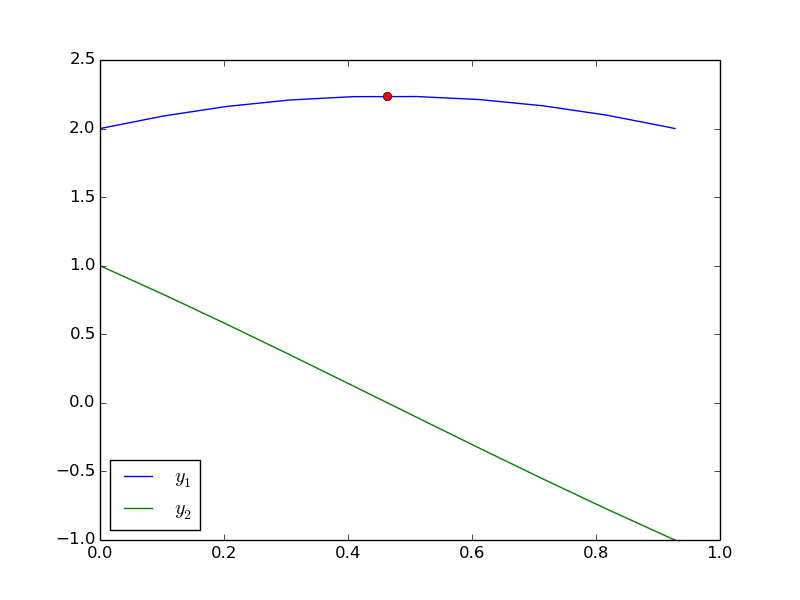Using events in odelay with multiple equations
Posted September 19, 2013 at 10:33 AM | categories: odes | tags: events
odelay was recently updated to support multiple odes with events. Here is an example. We want the solutions to:
with initial conditions \(y_1(0) = 2\) and \(y_2(0) = 1\). We want to stop the integration when \(y_2 = -1\) and find out when \(dy_1/dx=0\) and at a maximum.
from pycse import odelay import matplotlib.pyplot as plt import numpy as np def ode(Y,x): y1, y2 = Y dy1dx = y2 dy2dx = -y1 return [dy1dx, dy2dx] def event1(Y, x): y1, y2 = Y value = y2 - (-1.0) isterminal = True direction = 0 return value, isterminal, direction def event2(Y, x): dy1dx, dy2dx = ode(Y,x) value = dy1dx - 0.0 isterminal = False direction = -1 # derivative is decreasing towards a maximum return value, isterminal, direction Y0 = [2.0, 1.0] xspan = np.linspace(0, 5) X, Y, XE, YE, IE = odelay(ode, Y0, xspan, events=[event1, event2]) plt.plot(X, Y) for ie,xe,ye in zip(IE, XE, YE): if ie == 1: #this is the second event y1,y2 = ye plt.plot(xe, y1, 'ro') plt.legend(['$y_1$', '$y_2$'], loc='best') plt.savefig('images/odelay-mult-eq.png') plt.show()
Here are the plotted results:

Copyright (C) 2013 by John Kitchin. See the License for information about copying.